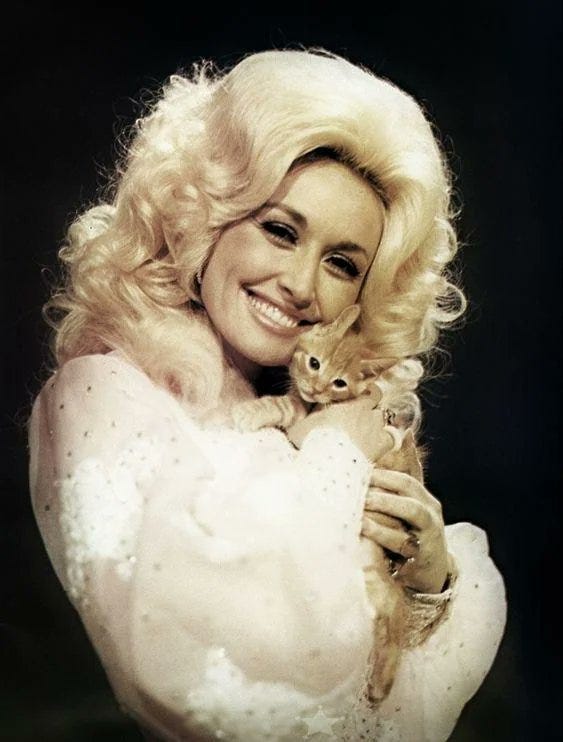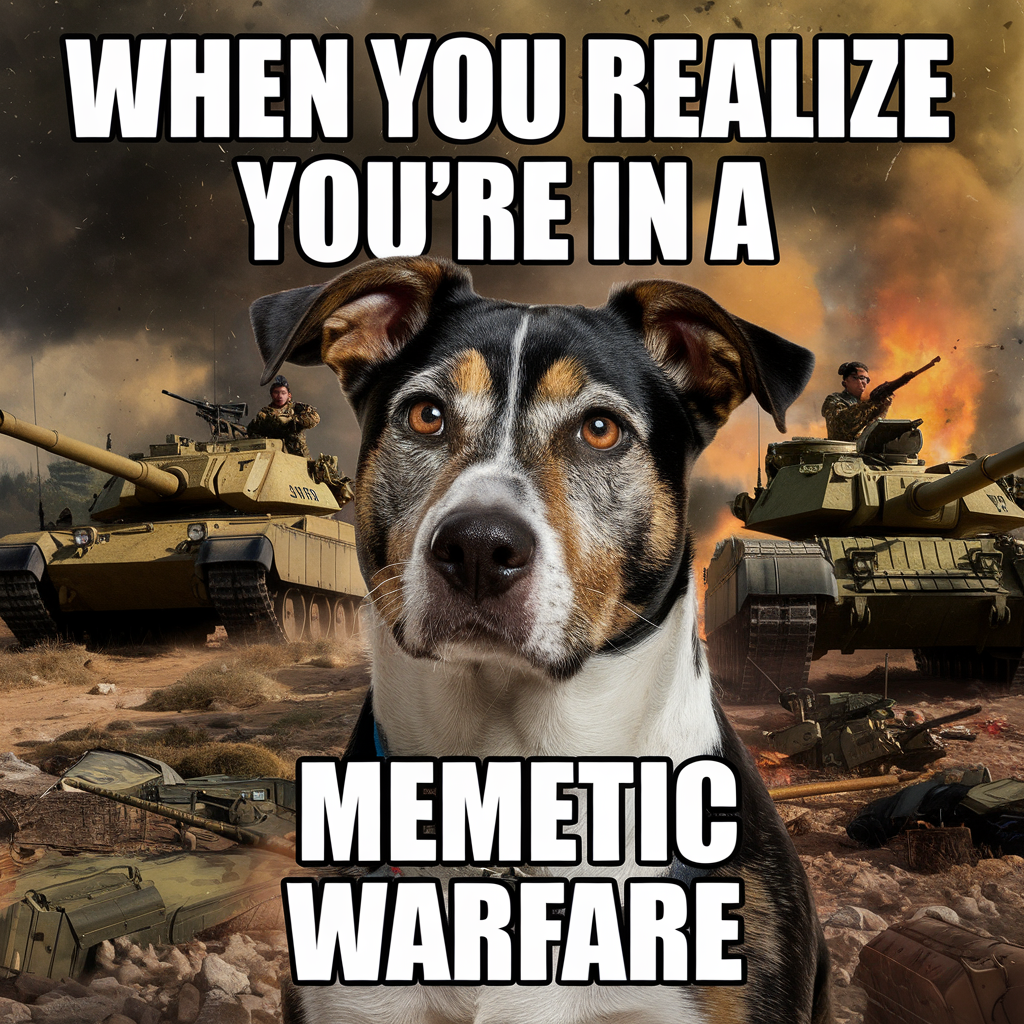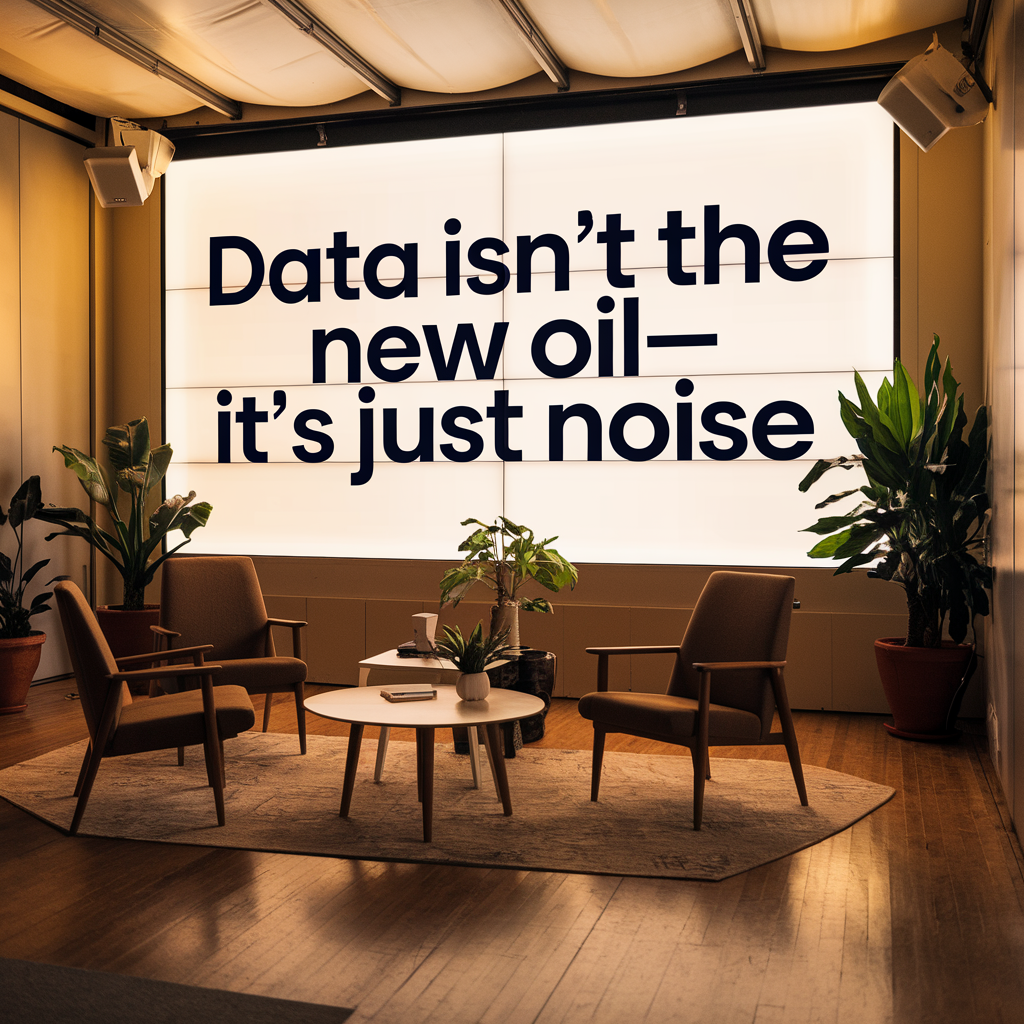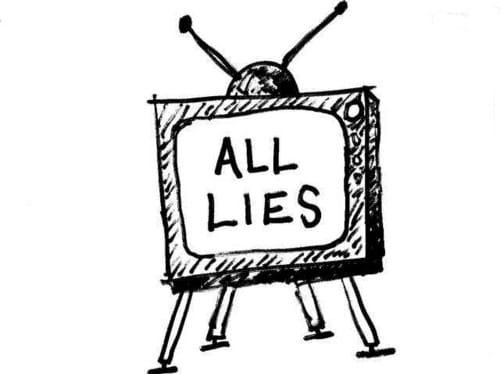The landscape of authority is shifting, and at the forefront of this transformation are internet memes. Memes have evolved from simple jokes or cultural references into powerful tools of influence. In an era of growing distrust in traditional institutions, memes have become weapons of what can be called "memetic warfare" — shaping political discourse, amplifying emotions, and often subverting established forms of authority.
But memes are more than just tools of influence — they are the modern mythology of our digital age. Just as ancient myths shaped collective beliefs, memes today construct shared narratives and foster collective identities. They encapsulate values, fears, and aspirations in ways that resonate deeply with large groups of people. Memes are the stories we tell ourselves about who we are, who our enemies are, and what kind of world we want to live in.
A well-crafted meme can communicate a complex idea in an instant, bypassing traditional gatekeepers of information. It requires no formal training to understand, no journalist to interpret it for you. It’s raw, direct, and capable of spreading across the internet like wildfire. Memes are participatory, adaptable, and capable of generating a sense of belonging among those who engage with them. But these very traits make them a double-edged sword. While they can foster community and shared understanding, they can also undermine expert opinion, distort facts, and perpetuate disinformation.
Take, for example, the rise of political movements that have harnessed memes to discredit mainstream media and government institutions. Memes like Pepe the Frog were co-opted by the alt-right to symbolize anti-establishment sentiment, turning a benign cartoon into an emblem of political rebellion. In the current electoral cycle, we see similar dynamics, with memes being used to create instant, often misleading narratives around candidates. The meme portraying a certain political candidate as an out-of-touch robot, or another as a superhero of the working class, can spread far faster than any traditional campaign ad, crafting perceptions that stick. These memes resonate not because they present a well-argued perspective but because they evoke emotions — often anger, mockery, or a feeling of being "in on the joke."
Pop culture, too, fuels this modern mythology. Consider how recent cultural phenomena like the “Barbenheimer” trend, combining imagery from both the Barbie movie and Oppenheimer, have transcended mere marketing to become a statement on duality in society — consumerism versus existential dread. These memes shape how we collectively think about culture, projecting complex emotions and ideas through simple, viral visuals.
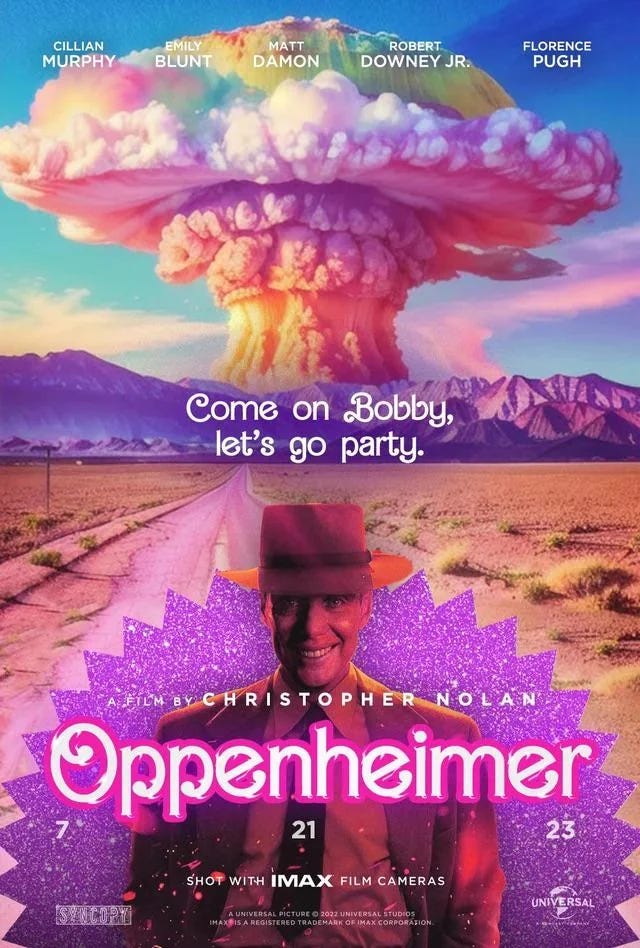
On the flip side, activists have also used memes to inspire solidarity and counter authoritarian rhetoric. The rapid spread of meme-like slogans like “Black Lives Matter” or visual symbols like the three-finger salute from "The Hunger Games," used in Southeast Asian protests, demonstrates how memes can also serve as rallying cries for justice and equality. During the current election, memes highlighting grassroots movements or emphasizing the voices of marginalized communities play a critical role in keeping these issues front and center, bypassing traditional media gatekeepers.
In this landscape, authority is no longer just about who holds official titles or access to traditional media platforms. Memetic warfare illustrates that authority is also about who can influence the narrative, who can create symbols that stick. Memes flatten the barriers to power, making anyone a potential influencer — for better or for worse. They function as modern myths, echoing and amplifying the beliefs of their creators and audiences alike.
The future of authority, then, is not about who controls institutions, but who controls the narrative. As memes continue to shape political realities and cultural conversations, understanding their power is crucial for anyone hoping to navigate — or influence — the world around them.
What are your thoughts? Have you seen memes impact political discussions or change the way you think about an issue? I’d love to hear your experiences. Let’s explore how authority is being redefined in this digital age, one meme at a time.
Childless cat ladies FTW
